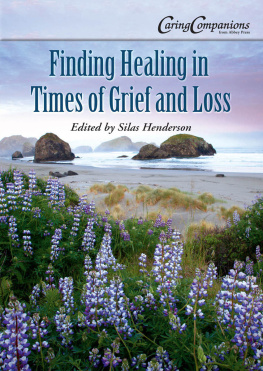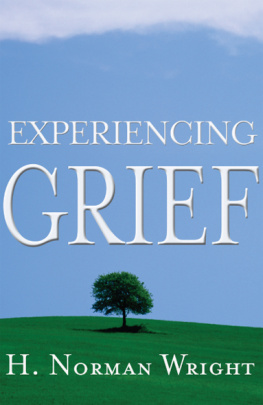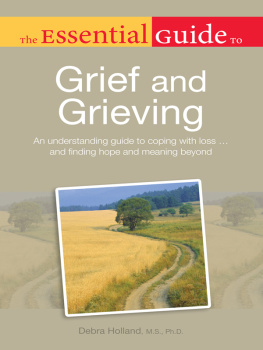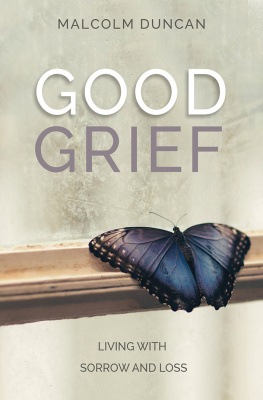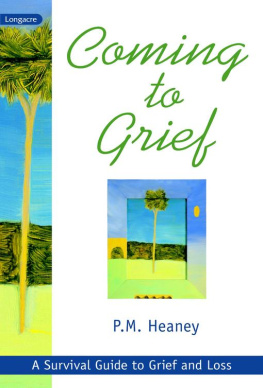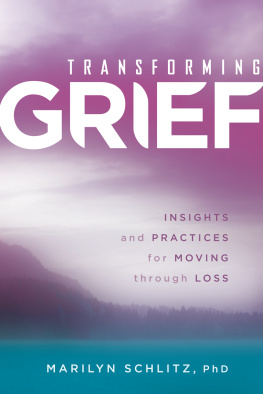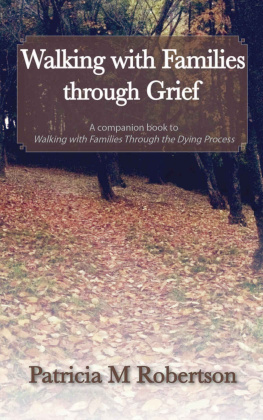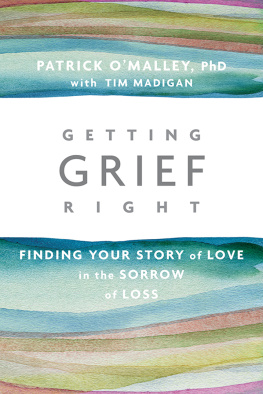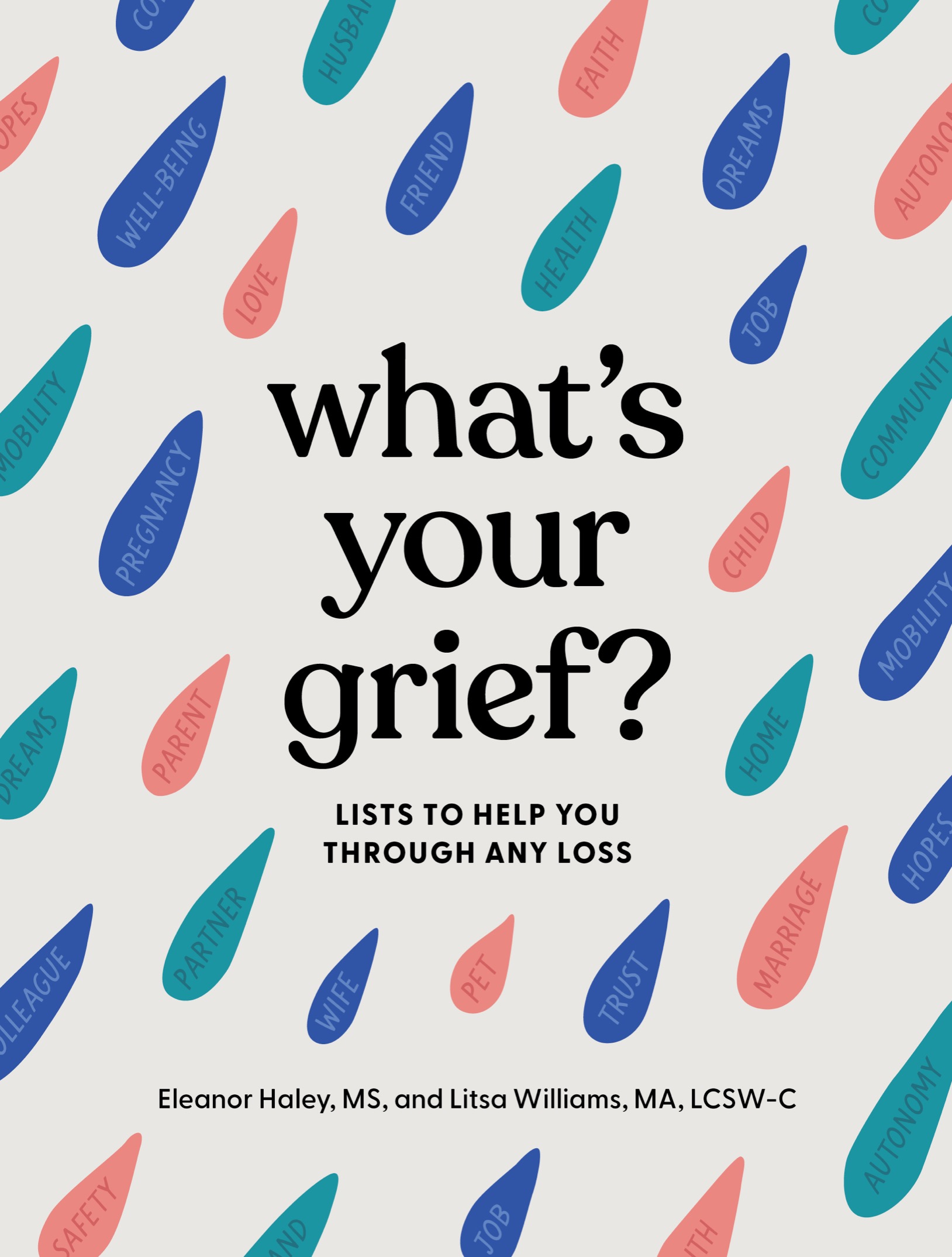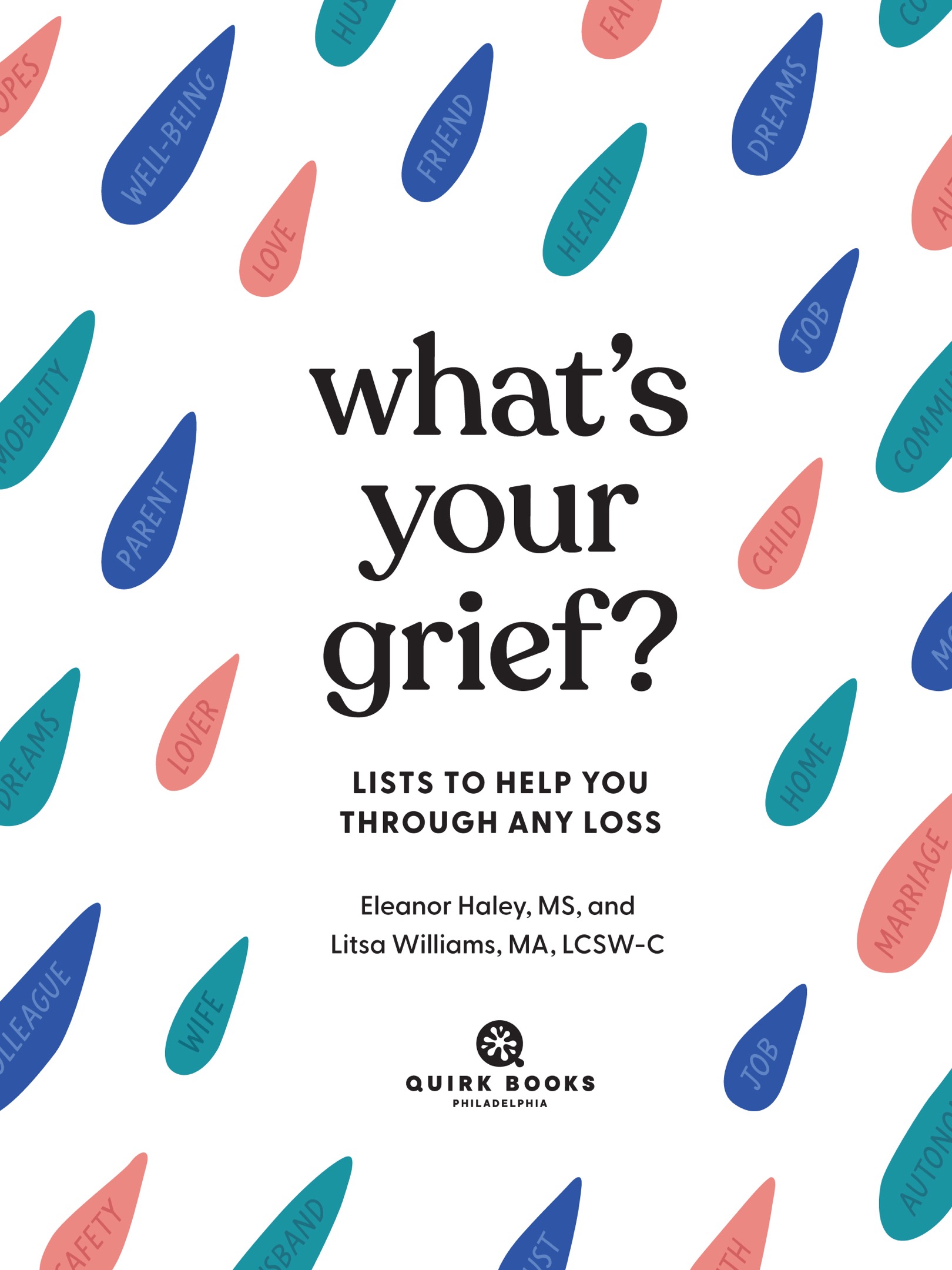INTRODUCTION
Welcome to a Book
We Wish You Didnt Need
Dear Reader,
Its hard to welcome someone to a book like this. On the one hand, we wish you didnt need it. On the other hand, were genuinely glad youre here.
As part-time skeptics, we tend to pick up books (especially self-help books) with caution. Though we dont want to assume that youre equally dubious, wed still like to provide you with a little background about this book by answering a few key questions.
Why did we write this book?
As mental health professionals working in the field of grief and lossand as people whove experienced grief ourselvesweve always seen it as our job to help people understand the vast range of emotions and experiences considered normal after loss. Thats why we founded the online grief community Whats Your Grief in late 2012. Since then, weve written hundreds of articles about grief and loss that are read by millions of grieving people and grief-support professionals each year.
We began writing this book in 2020. (And if you dont remember what happened in 2020, this books life in print is far longer than we ever imagined.) That was a year of major changeof cancellations, quarantines, remote work, loss, loneliness, sickness, and death. It was a year in which everyones eyes were open to the various shapes grief can take because everyone was experiencing loss on some scale. Still, many people also second-guessed their feelings and wondered, Is it selfish to grieve things that seem minor when so many people are sick and dying? Our simple answer to this question is no. Heres why:
Though some losses may seem smaller than others, your losses are valid and worthy of recognition, no matter the size.
Theres no threshold one has to meet to feel grief-like things.
One persons grief doesnt take away from anothers.
Regardless of the type of loss youve experienced, only you know the extent of your pain and struggle. Your grief is a distinct and subjective experience influenced by many factors. Here are just a few:
Grief is a reflection of you and your relationship with who or what has been lost.
Loss often sets off a domino effect of subsequent losses. So youre likely grieving a web of interconnected losses.
We all experience hardship, stress, and emotion differently. There is no one right way to grieve, there isnt a standard timeline, and there are many (many, many) ways to cope.
Thanks to myths and misconceptions about grief, people often assume its formulaic. They think X type of loss will cause Y amounts of pain. Or they believe theyll simply go through griefs stages and come out on the other side. But grief isnt predictable or uniform; instead, its highly variable and individual.
The individuality of grief makes it hard to understand, and people often feel thrown when their experience doesnt align with their expectation. Its common to wonder, Is this normal, or am I losing it? But most of the time, the answer to this question is, Yes, you are normal. As the Holocaust survivor and psychiatrist Viktor Frankl wisely wrote in his 1946 book Mans Search for Meaning, An abnormal reaction to an abnormal situation is normal behavior.
We cant save anyone from the messiness of grief, but hopefully we can help make it more manageable.
And in many ways, managing (rather than overcoming) grief is the goal. Or, if you prefer a different goal, you can choose tolerating it, integrating it, living with it, understanding it, maybe even growing from it if youre feeling ambitious. We know these goals lack a sense of closure compared to overcoming grief, but the truth is that this process is ongoing and most people dont just get over it. This idea may be scarybut you will be okay, we promise.
Because as your relationship with grief evolves, you will likely also find hope and healing by changing how you respond to, cope with, and conceptualize grief. Thats what we hope this book will help you do.
Why lists?
Weve just established that grief is a complex human experience. So now you may be wondering where we got the nerve to approach something so complicated with something as simple as lists. Which we get.
Grief is intense and overwhelming enough as it is. Its always been our philosophy that people who are grieving shouldnt also be expected to trudge through dense and inaccessible grief support. The truth is, it makes the most sense to approach something as nuanced as grief one step at a time, whether that step is understanding a new concept, reflecting on an aspect of your loss, or learning about a new coping tool. So, our goal with these lists is to distill the most important information and share it with you in ways that are easy to understand and apply.
You should also understand that when we say lists we mean all sorts: to-do lists, not-to-do lists, informational lists, bucket lists, lists completed by us, and lists to be completed by you. We promise well never tell you your grief can be categorized or solved with a set of bullet points. We know your experience is unique, and the most meaningful answers you find are the ones you arrive at yourself.
Ultimately, we hope that youll see this book as a place where you can begin to explore and understand your experiences related to loss and discover the ways to cope that work best for you.
How do you use this book?
When we began writing this book, it was tempting to approach it like a story, with a beginning, middle, and end. After all, there is an arc to grief, and wouldnt it feel reassuring to organize this confusing experience into such a familiar structure? Reassuring, yes, but accurate? Not entirely.


